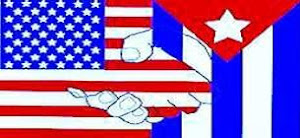Urges President-elect Obama to ‘Immediately Remove Travel Restrictions’ and Allow American Companies to Help Cuba Rebuild from Storms
Washington, DC – The National Foreign Trade Council (NFTC) and USA*Engage, along with ten other leading trade associations today sent a letter to President-elect Barack Obama, urging the incoming administration to reexamine current U.S. Cuba policy and consider new approaches that would benefit U.S. national security and economic interests and the Cuban people.
The associations, which include the American Farm Bureau Federation, Business Roundtable, and U.S. Chamber of Commerce, applauded President-elect Obama’s support for suspending restrictions on family remittances, visits, and humanitarian care packages from Cuban Americans, and noted that while “these are excellent first steps…we urge you to also commit to a more comprehensive examination of U.S. policy.”
“Your administration has a unique opportunity to take steps to end nearly 50 years of isolation from Cuba and the Cuban people. We support the complete removal of all trade and travel restrictions on Cuba. We recognize that change may not come all at once, but it must start somewhere, and it must begin soon,” they wrote.
In addition to calling for a comprehensive reevaluation of policy, the associations urged President-elect Obama to “immediately remove travel restrictions and allow Americans to act as ambassadors of freedom and American values to Cuba,” and to engage in bilateral discussions with Cuban government.
The groups also asked President-elect Obama to suspend certain restrictions on trade that would allow American companies to help Cuba to respond more effectively to the humanitarian crisis in the wake of recent hurricanes and storms in Cuba. They wrote that, “the United States could exempt agricultural machinery, heavy equipment and other exports from the embargo which would provide the goods and technology needed to rebuild from recent storms. The United States could also license direct banking services in order to facilitate these sales.”
“There is an opportunity to change policy which would open a new market for American businesses and help to demonstrate a new approach to foreign policy,” said Jake Colvin, Vice President for Global Trade Issues at the National Foreign Trade Council. “Helping Cuba rebuild from the storms could be a novel way for American companies to help reach out to the Cuban people.”
In the letter, the groups note that the U.S. embargo against Cuba is ineffective because it is unilateral. “Without the support of our allies and the larger international community, U.S. sanctions serve only to remove the positive influences that American businesses, workers, religious groups, students and tourists have in promoting U.S. values and human rights. Sanctions are also blunt instruments that generally harm the poorest people of the target country rather than that country’s leaders. There is no better example of the ineffectiveness of unilateral sanctions than in the case of Cuba.”
The associations highlighted the cost to American businesses and workers, citing a 2001 U.S. International Trade Commission estimate that showed the Cuban embargo costs U.S. businesses up to $1.2 billion annually in lost sales. “The real cost, however, is the influence that the United States has lost by voluntarily isolating itself from Cuba during an important moment of transition. Far from providing leverage, U.S. policies threaten to make the United States virtually irrelevant to the future of Cuba,” they wrote.
“Continuation of the status quo,” they concluded, “could leave the United States isolated from the Cuban people for another generation.”
In addition to the NFTC and USA*Engage, the letter was signed by the American Farm Bureau Federation, the American Society of Travel Agents, Business Roundtable, the Coalition for Employment through Exports, the Emergency Committee for American Trade, the Grocery Manufacturers Association, the National Retail Federation, the Organization for International Investment, the U.S. Chamber of Commerce and the U.S. Council for International Business.
"For the first time in years, American companies are paying attention to Cuba,” said Colvin. “They may not expect dramatic changes in policy immediately, but they want to be well-positioned for the future.”










0 Comments:
Post a Comment